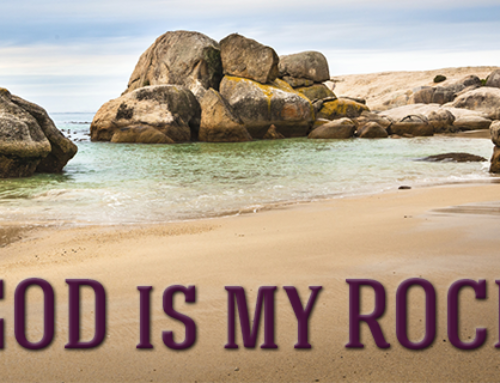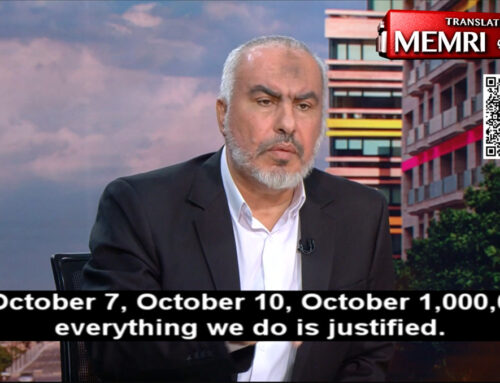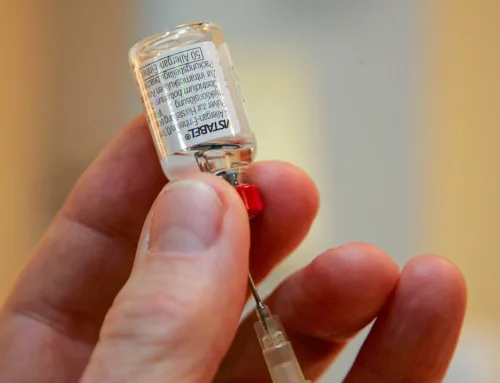There is no fear in love; but perfect love casteth out fear: because fear hath torment. He that feareth is not made perfect in love.
1 John 4:18 — King James Version
No unbelief made him waver concerning the promise of God, but he grew strong in his faith as he gave glory to God, fully convinced that God was able to do what he had promised.
Romans 4:20-21 — English Standard Version
For you, O Lord, are my hope, my trust, O LORD, from my youth.
Psalm 71:5 — English Standard Version
I realize the Scripture from Romans 4 above is about Abraham’s faith. But God’s promises do not ever change. God never removes a promise He makes. Faith is faith. And a person’s faith is known and counted by God for that person just as Abraham’s faith was counted for him. If a true disciple of His Son, the Lord Jesus Christ, thus truly renewed of mind and spirit by the power of the Spirit of God? Transformed, regenerated in mind, and born anew? Fear has no place. Yes, we’re human. Fears will arise. But they need to be swiftly dealt with as they ought to be dealt with and not permitted to increase within us. We need to be prudent, wise, and use the brain that God blesses us with, with regard to matters such as this pandemic, but fear has no place in the life of a true believer. Not if we pause, pray, be still, meditate and trust in and believe the Word of God.
It’s time to set aside this incessant fear driven by the media. What is droned on endlessly on television, in the so-called news. To induce fear and maintain fear and thus control. To drive people to the brink. To add to the mayhem and confusion. Move from the fear, move from the media, and move towards and into a Bible. Pick up a Bible. Pray as you are to open it. Ask the Holy Spirit to help you, teach you, show you what it is you need. Trust. Believe. Pray. Meditate on the Word. Pray on the Word. Live within the Word and not in fear, not allowing the world to have so much time, space, and noise in life.
Fear is created in the mind, in the heart. And only grows if we listen to it and the words of the world and we’re not listening to and within the Word of God enough.
Ken Pullen
Tuesday, August 10th, 2021
ACP — A Crooked Path
Only a third of Americans say faith gives them hope during pandemic, survey finds
Monday, August 09, 2021
By Anugrah Kumar
Reprinted from The Christian Post
Amid a contentious presidential election, racial justice protests and the COVID-19 pandemic, a new survey finds that only 36% of Americans say their faith has given them hope as more Americans say “fear” is the feeling they seek to avoid the most.
Lifeway Research, a research division of the Southern Baptist Convention, released a new poll last week titled “America’s Views on Emotions and Adversity.” The survey is based on interviews with over 1,200 Americans conducted last September.
The survey asked respondents “What has given you hope during the adversity you have seen during 2020?” They were allowed to choose all that apply from a list of responses.
The top source of hope for U.S. adults was the “kindness people have shown” (40%), followed closely by “relationships” (38%), “my religious faith” (36%) and stable finances (33%).
“About half as many Americans who identify with a religious faith credit that faith with giving them hope during 2020,” Lifeway Research Executive Director Scott McConnell said in a statement. “The Christian faith points followers of Jesus to a more hopeful future, which should shine even brighter during dark times.”
The survey found that respondents with evangelical beliefs (76%) were most likely to select “religious faith” as a source of hope. Seventy-four percent of respondents who attend Christian worship services four or more times per month selected their religious faith as a source of hope.
Lifeway further found that fewer Americans drew hope from the knowledge of scientists and experts (19%), recreation or fun (17%), new opportunities (14%), their work (13%) or research they’ve done themselves (10%).
More than four out of 10 (41%) of U.S. adults surveyed responded with “fear” when asked which feelings they seek to avoid the most. By comparison, only 24% of respondents said “shame” was the feeling they wanted to avoid the most, 22% said “guilt” and 12% said they weren’t sure.
The results mark a change from a similar 2016 Lifeway survey of over 1,000 Americans that found “shame” (38%) to be the most common feeling respondents wanted to avoid, followed by “guilt” (31%) and “fear” (30%).
“For many Americans, circumstances in 2020 led to an increased focus on their fears,” said McConnell. “Many feared getting COVID; others feared social unrest during protests; and politicians played on people’s fears in ads and speeches.”
Respondents from non-Christian faiths (57%) were most likely to say they want to avoid “fear” most of all. Nearly half (49%) of respondents who are 65 and older said “fear” is the feeling they are trying to avoid the most.
Thirty percent of African Americans surveyed selected “shame,” while 25% of white Americans and 18% of Hispanic Americans said the same thing.
Whites (23%) and Hispanics (25%) are more likely to want to avoid feelings of guilt than African Americans (15%).
When asked what they desire most in life, 36% of the Americans surveyed chose “personal freedom” and 32% chose a desire to “overcome.” Only 24% of respondents said they desire “respect” the most.
In the 2016 survey, 40% of Americans expressed a desire for personal freedom, 28% a desire to overcome and 31% a desire for respect.
“The events of 2020 led some to reevaluate their priorities, with fewer desiring respect. But most responded from what was already a priority for them,” McConnell explained. “Resistance to social distancing mandates was likely motivated by the desire for personal freedom. Speaking up about racial injustice was likely motivated by the desire to overcome power differences in society.”
Among respondents who identify as Christian, those who attend worship services less than once a month (40%) are more likely than those who attend services one to three times per month (29%) to select “desire for personal freedom.”
Although the survey was conducted last year, Americans still feel the virus’s impact as the spread of the delta variant has seen even those who are vaccinated getting COVID and is forcing the reinstatement of mask mandates in many localities across the country.
According to Johns Hopkins University Coronavirus Resource Center, the U.S. averaged more than 107,000 new COVID-19 cases a day for the first week of August. The center also reports the seven-day average for daily fatalities in the U.S. increased from about 270 a day to almost 500 a day over the past week as of Friday, notes the Associated Press.







Leave a Reply, please --- thank you.